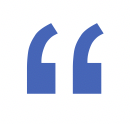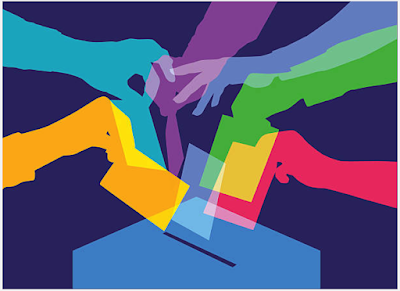With the COVID-19 restrictions, we knew that Summer programs would be heavily effected. One organization quickly responded with new innovations to adapt their Summer program to a virtual format. We interviewed the Executive Director of Edventure More (EDMO), Eduardo Caballero, to ask about this. His responses are below. (Note: Camp EDMO was featured in our report entitled, “Promoting SEL and Character Skills in Expanded Learning Programs.”)
Q: Can you provide us with some background information on Camp EDMO?
 |
| Eduardo Caballero, ED, Edventure More |
Q: Because face-to-face youth programs are impeded by the COVID-19 epidemic, what innovations did you introduce to address this challenge?
A: On Friday, March 13, 2020, with schools shutting down, kids’ learning suddenly thrust onto parents, and dark clouds forming over summer, we gathered our team and posed the design challenge of a lifetime to them: Can we create a live, interactive virtual camp experience that feels as close to the real thing as possible? Oh, and can we do it in a week? Four days later, the team came back and said, “Yes we can.” By Friday, March 20, exactly one week later, we opened enrollment for a free pilot version of an online camp. By Monday, March 23, we had over 500 kids registered with 1,023 waitlist spots.
 |
| Source: Camp EDMO |
Q: How did you price an online Summer program in a way that does not create more inequity in education?
A: In this crisis, we knew parents would be losing their jobs daily and wouldn’t be able to wait months or at best, weeks, to be “approved” for financial aid. The old system of financial aid applications was not going to work. Parents were going to need help immediately and we did not even have the staff to review applications. Did I mention we were forced to lay off 85% of our full-time staff in the middle of that design challenge? Even so, we did not want to create a platform that would only serve people who could afford $15-20 per hour.
Our solution to this design challenge is our biggest innovation to date - Honor System Pricing. It’s a system as old as humanity, yet revolutionary for the times. Here’s how it works in practice. We offer our online Drop-in sessions at $15/hour and our week-long Half/Full-Day Camps at $12/hour. We encourage families who can afford more, to donate. We encourage families who need financial support to apply an Honor Code. You can see what it looks like here.
Our biggest innovation is that equity in education is happening. This new model flips old power paradigms on their heads. The old system is that you, the customer, give us, the organization, money. In turn, we give you a service. The relationship is purely transactional. We, the company, will also make you feel good about your decision by touting that we give financial aid. We decide who is worthy of financial aid. Out of fear of someone abusing our goodwill, we create an elaborate system of financial aid. If you are an applicant, you must first adhere to a strict set of qualification requirements. Then you must fill out an application asking for your income, a teacher recommendation and personal stories to demonstrate that you are more deserving than another poor soul who is also applying. Then while you are experiencing financial hardship, you must wait weeks or months for us to “approve you.” Oh, and guess what? You’re going to have to do this process over and over again to get school lunch, after school programs, food stamps, dance classes or anything else you want to give your child. Have you ever seen the movie, Parasite? The old system is very similar. Poor people competing with each other for the benevolence of the rich over and over and over again. We actually kept our old system up so others can learn from our mistakes.
Our Honor System Pricing model is revolutionary in that we, the organization, have no power. The power is with the people. Parents have the power to make sure their child and ALL children get a high-quality education. EDMO® does not give scholarships or financial aid. We only create a space for families to stand in their values. Rather than a transactional relationship, we create a transformational relationship with our families. Parents decide if they enroll at our regular price or even donate more. Parents decide if they need financial help. Parents decide if a sustainable model of education will survive. This new economic system is based not on fear, but on human dignity, trust and love.
 |
| Source: Camp EDMO |
A: What is lost in our new online model is the old system of power and inequity. What is gained is the ability for any child from every socio-economic background, to learn, collaborate and connect with each other instantaneously. A child from East Oakland, California can instantly go to camp with a child from Westford, Connecticut.
What is gained is the potential to start addressing the root causes of implicit bias and racism. What is gained is parents becoming a force for equity and the bridging of the digital divide. What is gained is a new model of education that can fill the learning day gaps for every child once school partially reopens in the Fall.
The capacity to create real meaningful change is boundless. As of the week of June 8th we’ve had kids logging on to our platform from 43 different states and 7 countries including Singapore, Domincan Republic, Japan, Puerto Rico, Canada, Kuwait and India.
What is gained is the potential for nationwide and worldwide equity in education.
..................................
Eduardo Caballero is Executive Director of Edventure More. In addition, Eduardo has been active on the SF Department of Children & Youth’s Summer Work Group, The Big Lift collaborative’s Inspiring Summers Workgroup in the Peninsula, the Marin Promise in Marin County and the Oakland Summer Learning Network. He has also represented the Bay Area at summer funding lobbying events at the state capitol through CalSAC. Eduardo contributes to the field as a speaker at local and national summer and afterschool conferences. He has completed the Leadership for Equity & Opportunity (LEO) learning-in-action program and is learning to be a better equity ally every day.

















